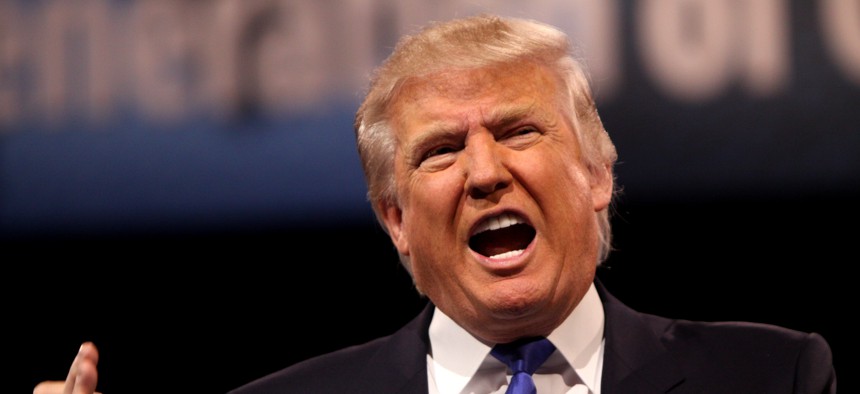
Flickr user Gage Skidmore
The Underrated Art of Persuasion
With business leaders (and others), Trump needs to try a new tactic.
As CEO of a family-run business, Donald Trump had little occasion to practice his persuasive powers. He was used to getting his way. As president, he has so far displayed this command-and-control style of leadership, issuing a rapid volley of executive orders and firing the acting attorney general when she displeased him.
But when he meets with some of the US’s most influential CEOs tomorrow—many deeply skeptical about his positions on trade and immigration—he won’t be able to browbeat them into submission. He’ll need to use persuasion to show them the wisdom of his actions if he wants their support.
Among the CEOs expected to attend the first meeting of Trump’s business advisory council are Jamie Dimon, of JP Morgan; Ginny Rometty, of IBM; Mary Barra, of General Motors, and Robert Iger, of Disney.
Trump prides himself on being a tough negotiator, but persuasion should be part of the tool kit for any deal maker. Effective persuasion doesn’t rely on manipulation or deception, but on establishing credibility, finding common ground, and relying on solid evidence, says Jay Conger, a business professor and author of The Necessary Art of Persuasion. “People must understand persuasion for what it is—not convincing and selling but learning and negotiating,” Conger writes.
Robert Cialdini, a marketing professor and author of Influence: Science & Practice, has boiled down persuasion to six principles:
- Liking: People like those who like them, and are more receptive to someone they enjoy being around. Offering genuine praise and compliments opens doors and relaxes people.
- Reciprocity: You have to give something to get something. From crude gestures such as gift-giving to more subtle offers of help or information, giving creates an opportunity for a favor to be returned.
- Social proof: We’re more likely to change our behavior when we know others have as well. It’s the principle behind including lists of donors on charity solicitations, or reminding college students how many of their peers don’t drink.
- Consistency: People are more likely to take action if they’ve committed to it. Getting a commitment, either verbally or in writing, can help seal the deal.
- Authority: We defer to experts, and trust the power of credentials. If you have evidence from authorities, deploy it.
- Scarcity: People are more likely to seize opportunities they feel are rare, or going to increase in value. If there is a closing window to make a deal, we’re more likely to act.
Whether Trump can marshall these forces tomorrow is an open question. But listening and making the case for his positions will certainly earn him more support from America’s CEOs than any number of angry tweets.
(Image via Flickr user Gage Skidmore)






